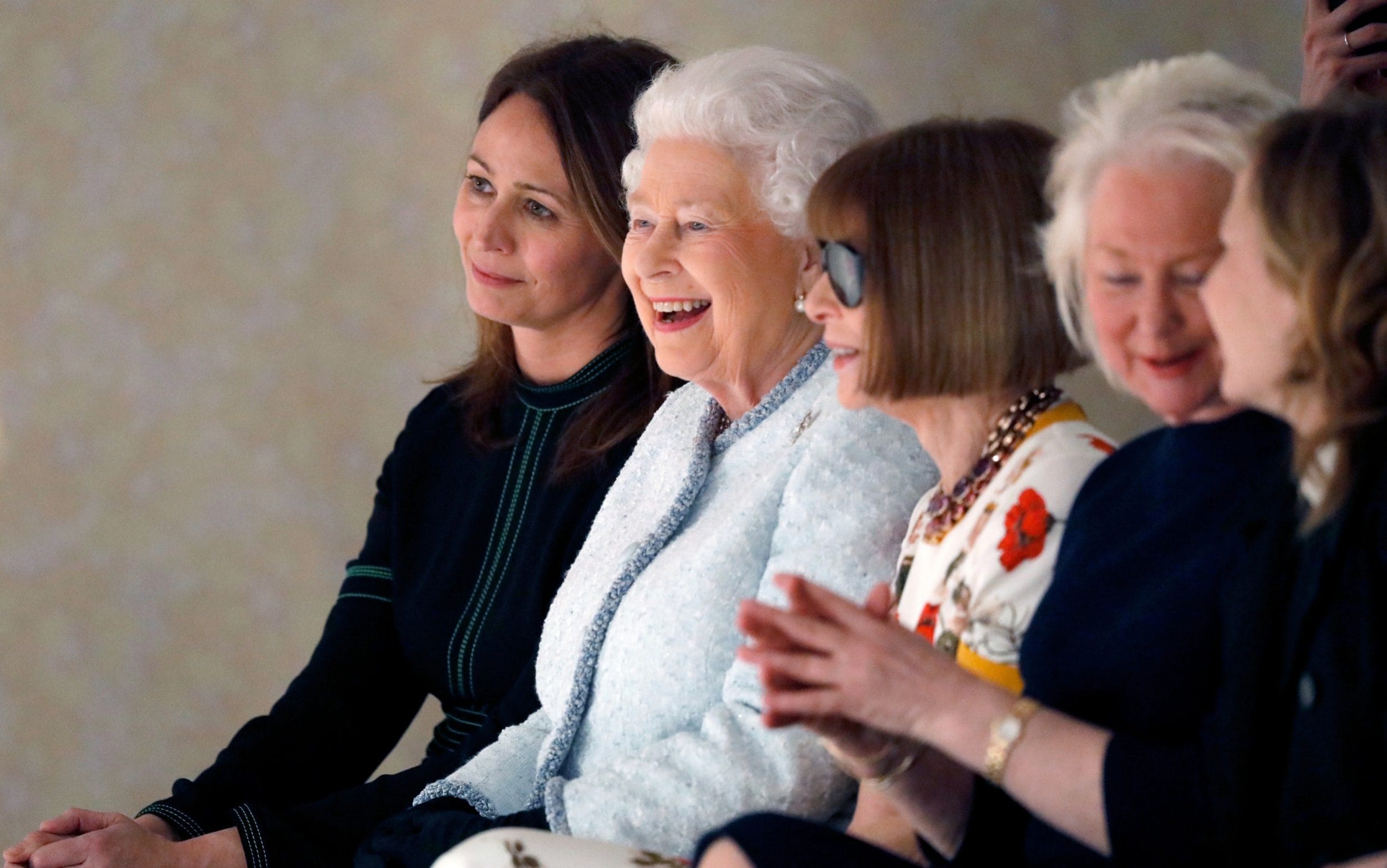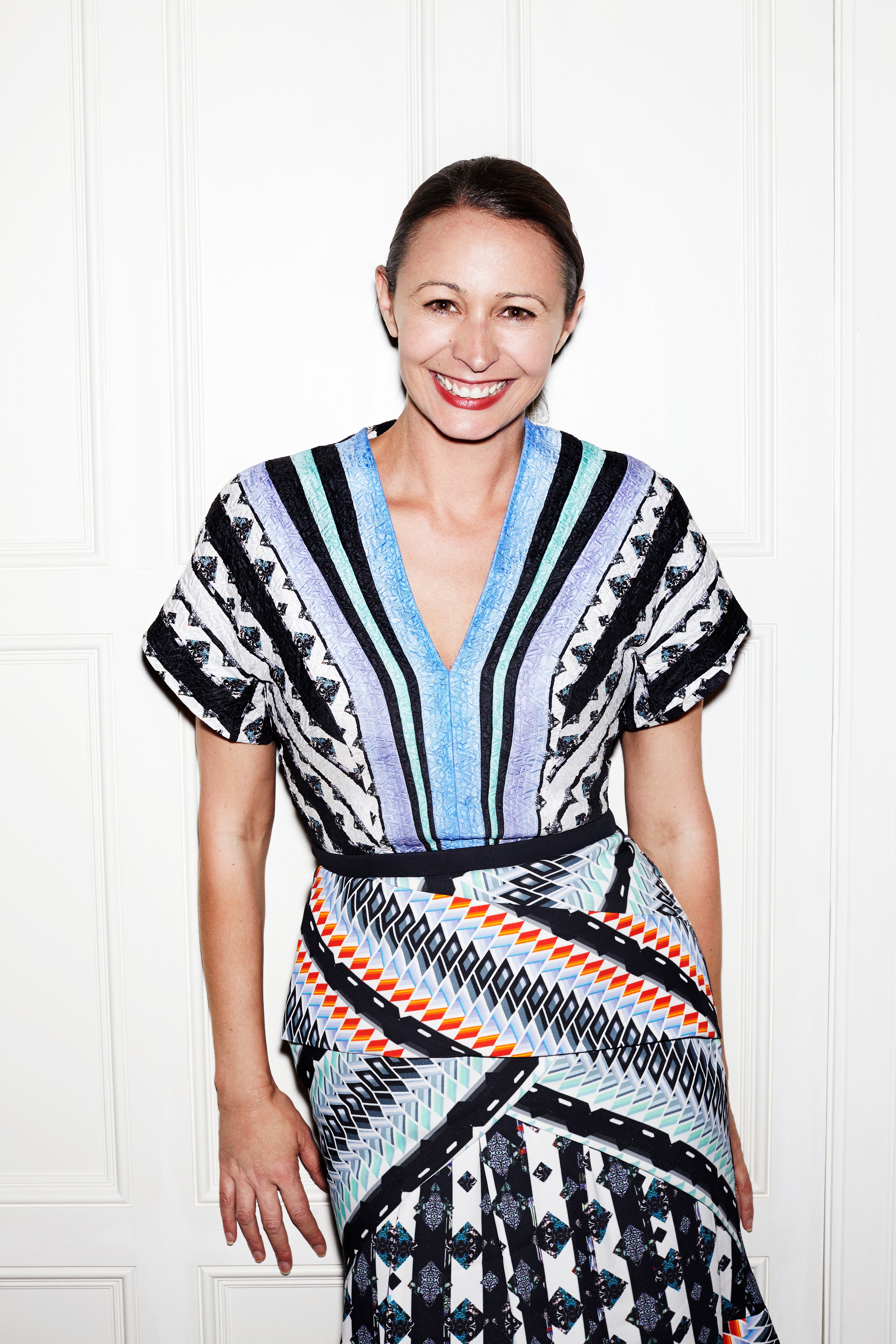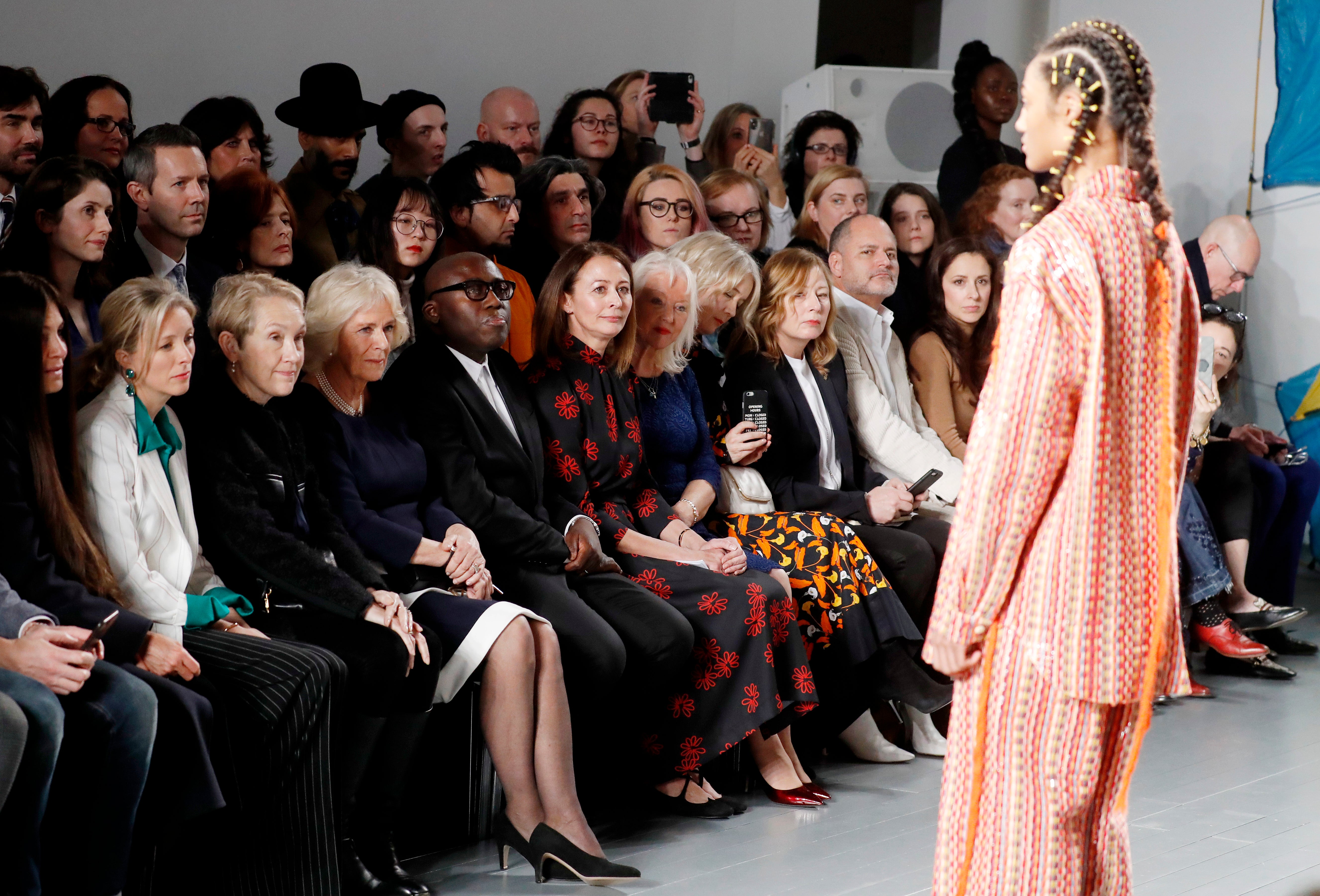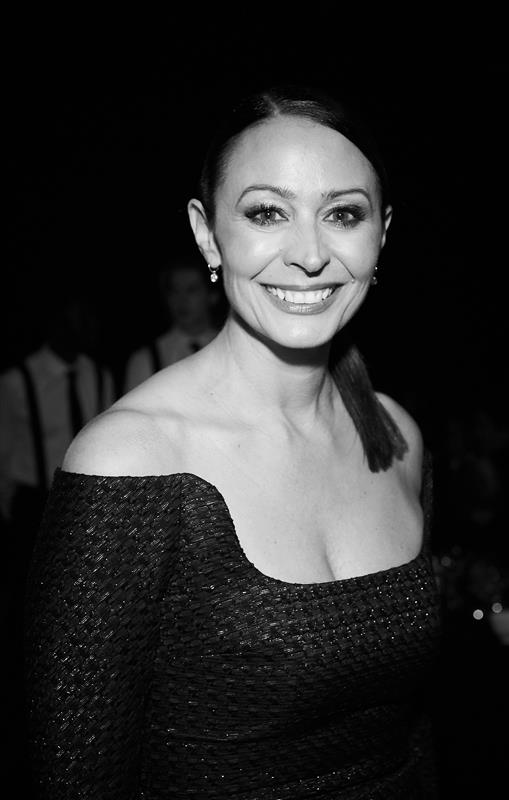How Caroline Rush put British fashion on the global map
The CEO of the British Fashion Council spoke to Zlata Rodionova about sustainability, helping other women in business, and what it means to join the everywoman board


When London Fashion Week kicks off in September, Caroline Rush is set to have a front-row seat.
Since becoming the British Fashion Council’s chief executive officer in 2009, Rush has been widely credited for putting UK fashion on the global map, and she was given a CBE for her dedication to the industry in 2015.
She told The Independent: “Under the guidance of Annette Worsley-Taylor, who was one of the women that started London Fashion Week, I really got hooked on the idea of fashion becoming this intersection into culture and society – as well as the role that creativity plays, within the fashion industry, of driving aspiration and new ideas.”
In her own words, the British Fashion Council (BFC), the not-for-profit organisation that organises London Fashion Week, was not “in a particularly great financial state” when she joined.
Together with her team, she built the organisation’s reserves, and was instrumental in developing London Fashion Week into the major event it is today by establishing its status as one of the “Big Four” fashion weeks alongside Paris, Milan and New York.
She further created a global entertainment platform with the Fashion Awards, now one of the most highly regarded awards ceremonies within the industry.
More importantly, perhaps, during Rush’s tenure the BFC put a support infrastructure in place for young creatives to be able to grow their businesses through mentoring and financial grants.
Although the fashion industry has faced its share of controversies, from poor diversity and unrealistic body ideals to its unsustainable business practices, Rush argues that the changing nature of the industry, and the part it has to play when it comes to tackling issues such as sustainability and diversity, is what excites her the most about her job at the BFC.
“There’s still a huge amount of change to come in our industry, and I think it’s that change that retains our excitement and interest,” she says. “Our [the BFC’s] role is really about bringing together the industry to tackle some of these big challenges.”
Rush believes fashion plays an intricate role in identity creation and how we represent ourselves, and that it can be a form of empowerment in the effort to improve diversity and gender equality.
“We have spent a lot of time working with experts to really think about challenging [the lack] of diversity on the catwalk, and not just in terms of race, but also in terms of gender as well as body diversity.
It’s not just about the skills, it’s about the softer mentoring touches that help women to build up their confidence
“Certainly, celebrating diversity within the industry, celebrating that sense of true self and identity – I think the fashion industry has an important role to play in doing that.”
Contrary to the idea that fashion oppresses women, Rush argues that it can inspire confidence and be used as an empowerment tool. “In many ways, as women, we have a freedom in the way that we dress and an opportunity to break out of the norm, maybe more than men do.
“There is this opportunity to really use the confidence that comes from the way you dress and the way you look, and it’s not about being a size 8 or 12 but just about feeling fantastic and confident.”
In 2020, the chance to empower women and support them in their careers is what led Rush to join the advisory board of everywoman – an organisation that champions the advancement of women in business in an effort to close the gender pay gap.
Among other things, the organisation helps female employees to develop their careers through events and leadership training, and gives them access to a powerful network.
“Everywoman is all about how to help women gain confidence to be able to build their career. It’s not just about the skills, it’s about the softer mentoring touches that help women to build up their confidence, to be the person that they are. The aim is to really lift up the women within their business.

“It’s also a great network and community as it brings allies across sectors. There’s a huge amount to be learnt from each other, to finally get to that gender diversity and parity that we all want within all industries, not just fashion. In challenging times, particularly, these networks of people become more and more important.”
In the context of the pandemic, one of everywoman’s key themes is to make sure that the employment of women continues. Rush says: “Last year, women’s employment was at a record high, but let’s make sure that continues.
“We don’t want the last two years to set us back by a decade. Quite often women shoulder the burden during challenging times, so we want to make sure they are supported to move forward.
“We also need to ensure that the gender and diversity work continues to be front-of-mind as businesses start to return to normal, whatever the new normal might be. I think, particularly when you’re in a leadership position, you’re very aware that you need to bring everyone with you and make sure you’re constantly lifting each other up.”
Rush credits Hillary Riva, the former chief executive of the BFC who hired her, as her inspiration and mentor. “I learnt so much from her and she had so much to give. She was all about empowering those around her. I always tell my daughter that she’ll learn as much from people that she wants to emulate as from the ones that she doesn’t. Everything is a learning curve.
“Even if you’re working with someone who doesn’t have the same values as you, you can use that to define your own values and understand why you treasure them so much.”

Mentoring wasn’t as structured as it is today when Rush started her career. She grew up in Lancashire, northwest England, and wanted to work in the fashion industry from an early age – but her job options seemed limited back then.
“My mum found this career advice form that I got at school. It said, ‘Caroline said she wants to work in fashion, we suggest she works in retail.’ That was probably the amount career advisers knew about the fashion industry at the time; obviously there’s so much more that you can do within the industry.”
After taking an art foundation course in Manchester, she moved to Tokyo for a brief stint in modelling. “I’ve always loved travel and really getting to enjoy different cultures and be inspired by them. However, I quickly realised that I don’t like having my photograph taken, so that was a fundamental flaw,” she explains.
Her marketing career began at fragrance company Giorgio Beverly Hills. “I absolutely loved the creativity that went into product launches, campaign engagement with consumers and tracking sales,” Rush says.
In turn this prompted her to launch Crush Communications, her own PR agency, and it was during this time that she began to work with the BFC on its new strategy. Come 2002, she was asked to run its press office in London – and the rest is history.
The Covid-19 shutdown brought the fashion industry to a halt, and Rush admits it has been the most challenging time in her career, but it has also been an opportunity to reflect on some issues faced by the industry – particularly sustainability.

In 2020, London Fashion Week went digital-only, giving the BFC a “fantastic” opportunity to connect with a broader, global audience.
Rush explains: “It gave us a bit of space to really work with the design of businesses, to think about the content and how they’re connected to the industry and to consumers.
“It will take a little bit of time for the industry to be at full throttle again, and all of that will be framed differently because we are talking much more about the impact of the industry in terms of climate change.
“Everyone’s much more conscious in terms of the business models within fashion, in terms of travel, and even as consumers – what we’re buying and how we’re disposing of products.
“I’m not sure, for example, that everyone should travel as much as we used to. We all need to be conscious around it and really think about our carbon footprint as individuals as well as businesses.”
This year, the BFC will continue to focus on its Positive Fashion initiative, a platform designed to celebrate industry best practice and encourage future business decisions to create positive change.
“In the year of Cop26, there’s a huge amount happening in terms of research and calls to action for businesses to commit to the race to net zero,” says Rush.
“That’s an opportunity to really bring an industry, but also an excited fashion-led consumer audience, with you; to really think about impact and change.”
The everywoman Global Summit for organisations looking to drive change and advance the gender diversity agenda takes place from 17-19 November 2021: https://everywomanforum.com/mpage/ew_global_summit
Join our commenting forum
Join thought-provoking conversations, follow other Independent readers and see their replies
Comments


Bookmark popover
Removed from bookmarks